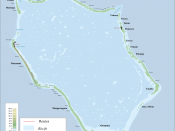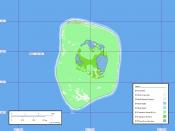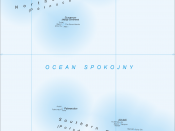INTRODUCTION
As a recently appointed manager of the Southern Cross Group 5 star international hotel chain I have been asked to discuss the importance of and issues relating to Cross-Cultural management in Avarua, Cook Islands. This report will investigate the cultural, economic, political and social environments in the Cook Islands, identify tourism developments and the important role cross-cultural management plays with both employees and guests.
ENVIRONMENTS
The Cook Islands are a nation comprising of 15 islands spread over 2.2 million square kilometres of ocean in a hurricane zone in the South Pacific. (Douglas. N & N. 1987, http://www.ck/ http://www.ck/geog.htm).
The total population of the Cook Islands is said to be 20,811(July 2002 est). More than half live in Rarotonga (13,000) where the Capital is Avarua. (Arnell D. Wolk.L 1993, Bruce. J 2003, http://www.cia.gov/cia/publications/factbook/geos/cw.html, http://www.ck/people.htm
http://www.tourismcookislands.com/info).
CULTURE
"Cook Islands have a special charm and scenic beauty" (Douglas N & N 1987 page 149)
that hosts a diverse and unique cultural environment.
This is shown through family ties, music, dance, language and religion.
Cook Islanders are friendly Polynesians. There greeting is "Kia Orana (key-o-rah-na), meaning, "Here's Life." (Hello -you may live) (Arnell D. Wolk.L 1993, Bruce. J 2003)
The extended family system was a way of life for Cook Islanders. However due to changes in lifestyle and technologies families are travelling more and distancing from one another. For example girls are now moving away from their parents before marriage and the respect for elders is diminishing. Although there is still pride, care and respect between relatives. "On the one hand, there is change; on the other, renewed respect for our past and its wisdom and traditions." (Sir Geoffrey Henry KBE Prime Minister. cited by Arnell D. Wolk.L 1993. page 6).
"Not so long ago, one would never go...


